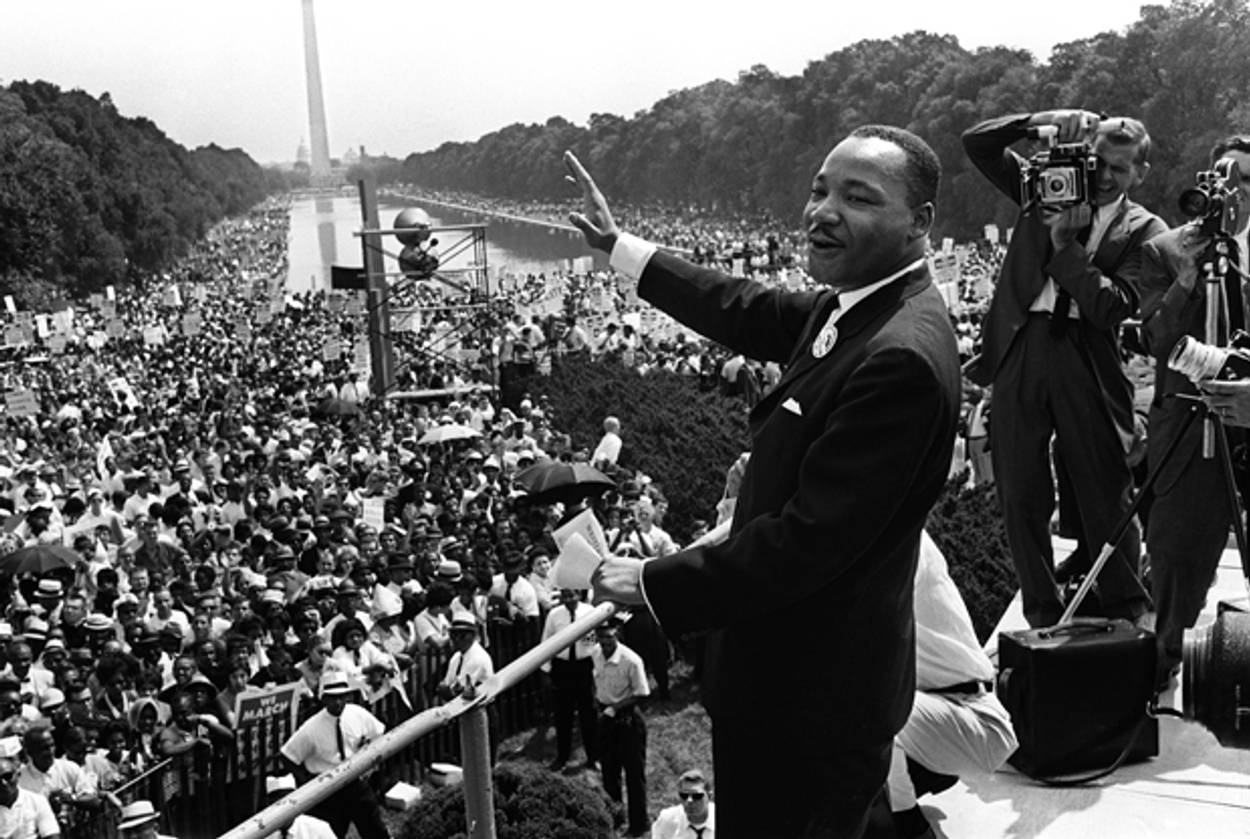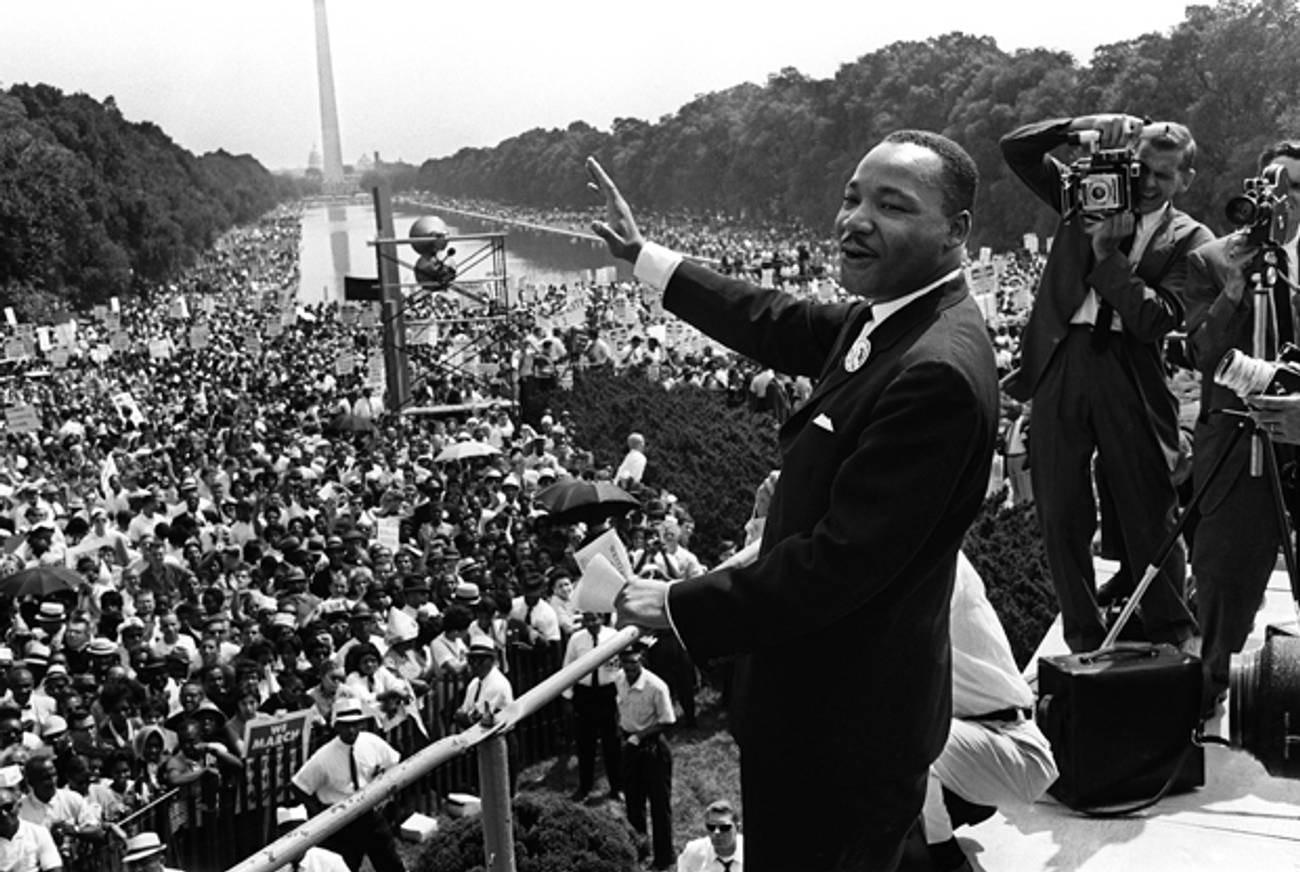Remembering the March on Washington
Listening to Martin Luther King Jr’s ‘I have a Dream’ speech, 50 years later




On my way to work this morning I listened, at the urging of so many social media contacts, to the Rev. Dr. Martin Luther King Jr.’s I Have a Dream Speech. Usually I read it on his birthday as a personal memorial, but I felt the need to listen to it today, on the 50th anniversary of the March on Washington, for its gorgeous, eloquent, clear prose. It’s competing with brutal images flooding in from Syria and with the distant but steady drumbeat of war.
While I fed my child breakfast, I considered how lucky we are here. We live free of the threat of chemical weapons poisoning us, without the fear of beheadings, drought, and plagues. The scourges I read about all over the the world are thousands of miles away. Certainly this country isn’t a paradise—there’s spying, persistent iniquity, paralyzing poverty, and insidious corruption—but I still must acknowledge our relative safety, our relative peace, and the great good luck that we live in this state and not in another.
When King crescendoed into the rousing dream portion of his oratory, I thought for an instant of someone else’s dream. A nightmare. It’s the dream within a dream that Primo Levi describes at the end of The Reawakening, his memoir about his return to Turin after surviving Auschwitz. In his dream the outer trappings of normalcy fall away and he’s “alone in the centre of a grey and turbid nothing,” Levi writes. “And now, I know what this thing means, and I also know that I have always known it; I am in the Lager once more, and nothing is true outside the Lager.”
As much as I love Levi and his searing memoirs, I wonder if he might be wrong—that King’s speech offers an alternative to Levi’s despair. As wretched as the Lager was, there is, in fact, something outside of it. King shows us there is imagination. There can be hope.
Related: The Plot for America: Remembering Joachim Prinz, the Civil Rights Leader and Confidante of Martin Luther King
Previous: ‘Brotherhood Cannot Be a Theory’
The Black-Jewish Alliance
Sara Ivry is the host of Vox Tablet, Tablet Magazine’s weekly podcast. Follow her on Twitter@saraivry.